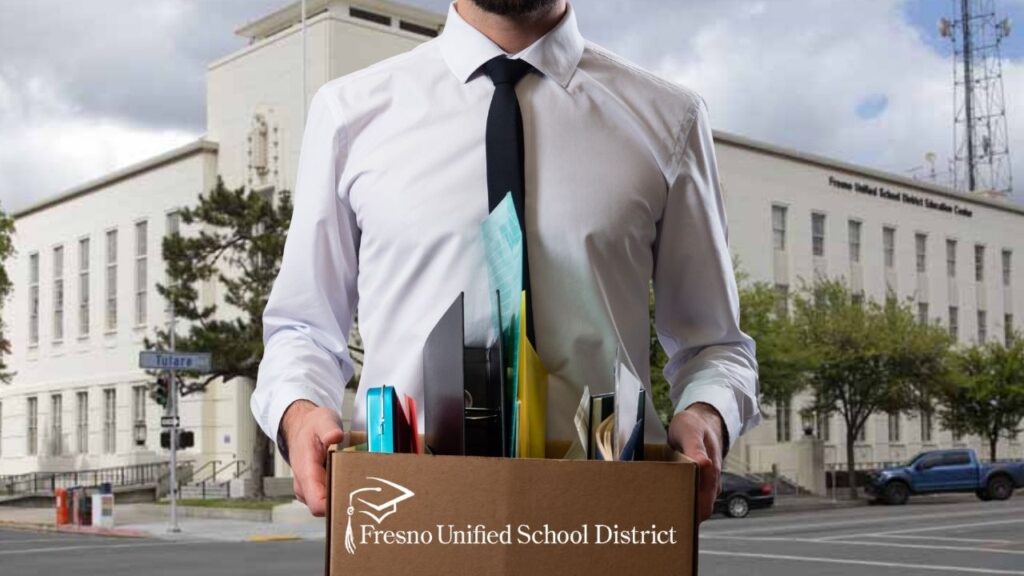Share
|
Getting your Trinity Audio player ready...
|
Fresno Unified’s Literacy Initiative goal to have all students reading by the end of first grade will depend in part on getting parents and teachers on board and involved, staff and trustees said at Wednesday night’s board meeting.
Trustees said they are excited at the prospect of the district launching its Literacy Initiative in August. But they questioned how teachers, who are on the front line of literacy in their classrooms, will participate in developing the literacy plans implemented in their classrooms.
A team of administrators led by Dr. Natasha Baker, the district’s chief academic officer, provided an update on the Literacy Task Force’s recommendations for the district’s Literacy Initiative, which Superintendent Bob Nelson announced in April to great fanfare.
Board President Veva Islas noted that Wednesday’s presentation was somewhat lacking in specificity.
“I do appreciate that you all, as experts in your field, are wanting to digest it so that it’s consumable for us,” she said. “But at the same time, I think there’s an oversimplification that doesn’t give us the details that we really need to see. So I would just say that in future iterations, as we’re building this out, that I would like to see a lot more details because some of what is being presented here for me was almost a given, like, why aren’t we already doing that?”
Details Are Key
Board Clerk Susan Wittrup praised the work done on the initiative so far but noted that the plan is “really going to live in the details in the granular level.”
She said the initiative will need to identify the interventions and best practices that should be implemented districtwide to ensure that educators identify struggling students and address their needs sooner rather than later.
“And that needs to be monitored regularly,” Wittrup said. “Because when a child is not responding to those interventions, then we need to change what we’re doing quickly and adjust instruction.”
Thus far the Literacy Task Force’s recommendations include requiring quarterly assessments of student literacy.
Involving Parents
Trustee Elizabeth Jonasson Rosas emphasized the importance of engaging parents in the initiative, providing them tools such as books and flashcards so they can work at home with their children.
Parent and community partnerships are one of the three pillars identified for the plan. The other two are pre-kindergarten through first-grade instruction and high-quality supports, including assessments, tutoring, and extended learning opportunities.
Trustee Keshia Thomas questioned how the initiative will address parents who are “difficult to engage.”
“Because as we know, it is not always easy,” she said. “How are we going to get to those people?”
Fresno Unified’s goals are aggressive for a district in which student academic performance typically ranks among the lowest of large urban school districts nationwide. Nelson said that one measure of the initiative’s success will be when Fresno is No. 1 among districts of similar size and demographics.
The district launched its initiative with a task force of trustees, administrators, teachers, and community members who held three sessions to establish the initiative’s framework.
The task force recommended three goals: improving academic performance “at challenging levels,” expanding learning experiences, and increasing student engagement in school and communnity.
Investing in What Works
The Literacy Initiative also needs to include ongoing assessments of what’s working and what’s not, Islas said.
“That reflection, I think, for us is very valuable because where it is working is where we want to invest more. What are the things that are really being done well, the materials, the parents, professional learning, all of that,” she said.
Nelson said it’s important to include teachers in shaping the details of the literacy plan that they will be helping to implement.
“The reality of it is, when the school door shuts, if I didn’t have anything to do with what I’m creating there, either I’m going to give lip service to it and I’m not going to do it, or I may do a lackluster job at it,” he said. “So the key thing is that we’re making this commitment for our community, for every kid reading by the end of the first grade, it really has to come on the backs of everybody feeling like they’re part of what it is that’s happening.”
But school staffers should not consider participation in the Literacy Initiative as optional, Wittrup said.
“Although we need buy-in from everybody, there are some things that are non-negotiable, that we know are best practices. And so that explicit good, first instruction has to be everywhere,” she said.
Categories


















